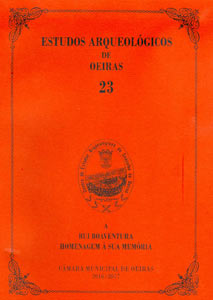Perscrutando espólios antigos 5: Contributo da análise dos restos ósseos humanos
Palabras clave:
human bones, Mega-Osteology program, PrehistoryResumen
Numerous human bone collections from old excavations lie "forgotten" in various museums and private collections. The exhaustive analysis of these forgotten prehistoric assemblages began in the 1990s, framed by new methodological and interdisciplinary approaches that allowed a better interpretation of these tombs. This type of collaboration happened between the authors of the present text and the archaeologist Rui Boaventura for the review and study of several anthropological collections of tombs from central and south Portugal, dated from the 4th and 3rd millennia BC.
In the scope of this work, the analysis of the collections studied during the annual Mega-Osteology program, promoted by Portanta, Iberian Archeology Association, and developed in the Geological Museum and the National Archaeological Museum between 2004 and 2015, and the analysis of the human remains recovered from the Lugar do Canto cave must be highlighted.
In this essay, the potentialities of the analysis of human bone remains for the biological and social characterization of these prehistoric communities and the main difficulties faced when studying such collections will be underlined. Finally, a summary of the data obtained by the present team through the “re-visitation” of these ancient collections will be presented.
Descargas
Publicado
Cómo citar
Número
Sección
Licencia
Os artigos publicados são da exclusiva responsabilidade dos Autores.
É expressamente proibida a reprodução de quaisquer imagens sobre as quais
existam direitos de autor sem o prévio consentimento dos signatários dos artigos
respectivos.




